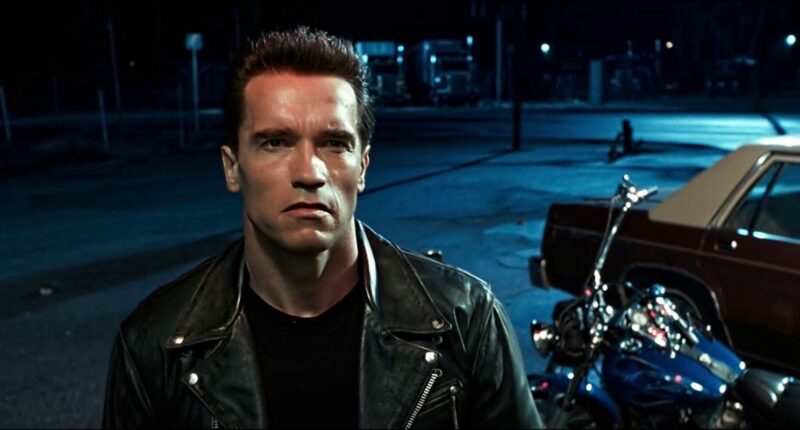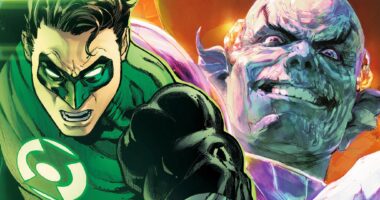The ’90s were a seminal period for the movie business. The rise of the blockbuster, which began all the way back in 1975 with Steven Spielberg‘s Jaws, led to massive movie events that dominated the box office, cultural conversation, and, in some cases, even awards season. The line between art and commercialism began to blur as more filmmakers embraced new and exciting techniques. That’s not to say small-scale filmmaking disappeared — quite the opposite, actually, as indie cinema became stronger, thanks to the trailblazing work of auteurs like Quentin Tarantino, Gus Van Sant, Richard Linklater, and Paul Thomas Anderson.
Indeed, the ’90s produced an embarrassment of riches when it comes to cinema, to the point where one might not end up watching all the great movies the decade produced. Thus, if you want to start acquainting yourself with the decade, or if you just want to cover a more general ground, these are the ’90s movies that you simply cannot miss. Featuring both indie efforts, big-budget blockbusters, and acclaimed darlings, these movies represent the essence of ’90s filmmaking. It’s no surprise that many are already bona fide modern classics, revered for their impact on the industry and credited with shaping the cinematic landscape of the new millennium.
‘Terminator 2: Judgment Day’ (1991)
What better way to kick off this list than with the greatest purely sci-fi movie of the ’90s? Seven years after his seminal 1984 action-sci-fi The Terminator, James Cameron reunited with Arnold Schwarzenegger for the sequel, Terminator 2: Judgment Day. This time, the T-800 is reprogrammed and sent back to protect John Connor (Edward Furlong) from the powerful T-1000 (Robert Patrick), an advanced model composed of liquid metal. Along the way, they rescue John’s mother, Sarah (Linda Hamilton), and recruit her for the fight.
Cameron is really good at sequels, but Judgment Day might very well be his magnum opus. From the then-revolutionary visual effects to the thoughtful and thought-provoking narrative, this follow-up to an already seminal film defied all expectations. Cameron masterfully weaves emotion into an action-driven plot, bringing out some of the best work in Schwarzenegger’s career. In Hamilton’s Sarah Connor, the action-sci-fi genre received one of its most iconic female heroines, with Patrick’s T-1000 acting as the perfect foil. Today, the film’s themes about the true meaning of human nature and our delicate connection with technology and machines are far more resonant, proving that some movie masterpieces are genuinely timeless.
‘Jurassic Park’ (1993)
Steven Spielberg is arguably the defining director of the ’90s. Three of the six movies he directed throughout the decade are certified classics, but none has had more influence on the entertainment industry than Jurassic Park. Based on Michael Crichton‘s eponymous 1990 novel, the film follows a group of experts invited to a park by an eccentric millionaire. There, the group discovers that dinosaurs have been successfully cloned, but things quickly go south when a system malfunction caused by a treacherous employee results in the dinosaurs terrorizing the guests.
Everything about Jurassic Park has aged like fine wine. Spielberg’s dynamic, vibrant direction; the performances of a cast at the top of its game, especially a scene-stealing Jeff Goldblum; John Williams‘ now legendary score, that somehow captures one’s sense of awe and translates it to music; the seamless balance between action and adventure with horror elements throughout. Simply put, Jurassic Park is a one-of-a-kind, the prototype for the summer blockbuster that would dominate the screens for the next three decades. It spawned an entire franchise of uneven movies that are nonetheless hits with audiences, with the latest, Jurassic World Rebirth, bringing in over $800 million worldwide. Turns out, dinosaurs still rule the Earth.
‘Pulp Fiction’ (1994)
Indie cinema was huge in the ’90s, and no indie movie was bigger or more influential than Pulp Fiction. Tarantino’s kaleidoscope of stories about crime, violence, betrayal, ambition, and drugs set against the sunny backdrop of ’90s Los Angeles was explosive from the get-go. John Travolta, Samuel L. Jackson, and Uma Thurman star in Oscar-nominated performances alongside a sprawling cast that also includes Ving Rhames, Tim Roth, Amanda Plummer, and Bruce Willis.
Pulp Fiction changed the rules of the game. Blending genres, shifting tones, playing with characters, and juggling themes, the film became a landmark in narrative cinema and the indie space. Tarantino’s kinetic direction is electrifying, the cinematic equivalent of the adrenaline shot Thurman’s Mia receives straight to the heart. His pop-culture-laced, sharp, and biting dialog feels refreshing and special, as if you’re listening to modern poetry through a distinct, hyper-violent, and profane filter. Pulp Fiction was an instant classic, inspiring countless copycats and launching the indie scene into the mainstream. Few movies feel more purely ’90s than this colorful and chaotic puzzle, a time capsule of a specific time and place that never gets old.
‘The Shawshank Redemption’ (1994)
Based on one of Stephen King‘s best non-horror stories, Frank Darabont‘s The Shawshank Redemption is a crime saga with genuine heart. Tim Robbins stars as Andy Dufresne, a banker accused of murdering his wife and her lover and sentenced to life at Shawshank Penitentiary. There, he meets and forms a life-changing bond with Red (Morgan Freeman), a fellow lifer with a more cynical outlook. Over the years, the two will endure numerous experiences that will change their perception of life and, most importantly, hope.
There’s a reason why The Shawshank Redemption is widely considered one of the all-time greatest movies in American cinema. Darabont crafts a rousing ode to the human spirit in the face of profound and near-inescapable misery that never feels schmaltzy or over-simplified. Robbins and Freeman deliver career-best performances, as does Bob Gunton as the despicable Warden Norton. At its core, The Shawshank Redemption is a love letter to the unbreakable nature of the human spirit and the importance of hope in a person’s life, no matter how bleak the situation is. There is an old-fashioned sentiment to it that only makes it better without ever descending into conservatism. The Shawshank Redemption is life itself through a cinematic lens; movies don’t get more powerful than this.
‘Fargo’ (1996)
Joel and Ethan Coen ensured their place in the pantheon of great American auteurs with their 1996 black comedy crime film, Fargo. Set in the American Midwest, the film follows Jerry Lundegaard (William H. Macy), a hapless and indebted car salesman who hires two thugs to kidnap his wife so he can demand ransom from her wealthy father. The plan soon escalates into violence, prompting pregnant chief of police Marge Gunderson (Frances McDormand) to investigate.
Fargo is Americana by way of criminal comedy. The Coens marry offbeat comedy with spontaneous bouts of brutal violence, creating a hybrid that feels as wildly original today as it did in 1996. At the center is McDormand in a career-defining performance, a traditional heroine surrounded by danger on all fronts. In Fargo, violence is more the result of incompetence and less out of a genuine desire to hurt. Just as importantly, it captures the desolate, strangely bittersweet nature of living in desolate, strangely bittersweet places, where many stories might be considered too unimportant to make for exciting movies. Here, the Coens shine a light on those middle-of-the-road towns you might not pay much attention to; turns out, the heavy snow hides the biggest secrets.













